Connected Feelings and Repressed Powers: The Pain of Sarada Uchiha's Love
The connection between TBV Chapter 21 and The Seventh Hokage and the Scarlet Spring.
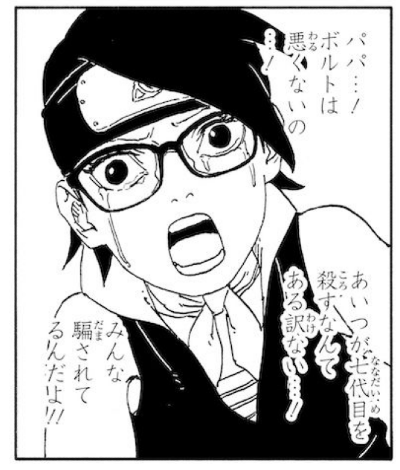
A warning to readers: I'm basing this analysis on the single released page from the Boruto official sneak peek released on April 14th, not complete spoilers. I reserve the right to be wrong.
The sneak peek panel released for Boruto: Two Blue Vortex (TBV) chapter 21 puts an end to speculation that has been occurring since the last chapter of Boruto: Naruto Next Generations (NNG)—Sarada was unaware that she awakened her Mangekyo Sharingan due to the pain she felt after Eida's Omnipotence switched the places of Boruto and Kawaki, one more unfair tragedy befalling her childhood friend and teammate. This isn't the first time Sarada has awoken her family's ancestral dojutsu abilities through the loss of a loved one or repressed the pain of doing so, however.
Let's take a look at the awakening of Sarada's sharingan in The Seventh Hokage and the Scarlet Spring.
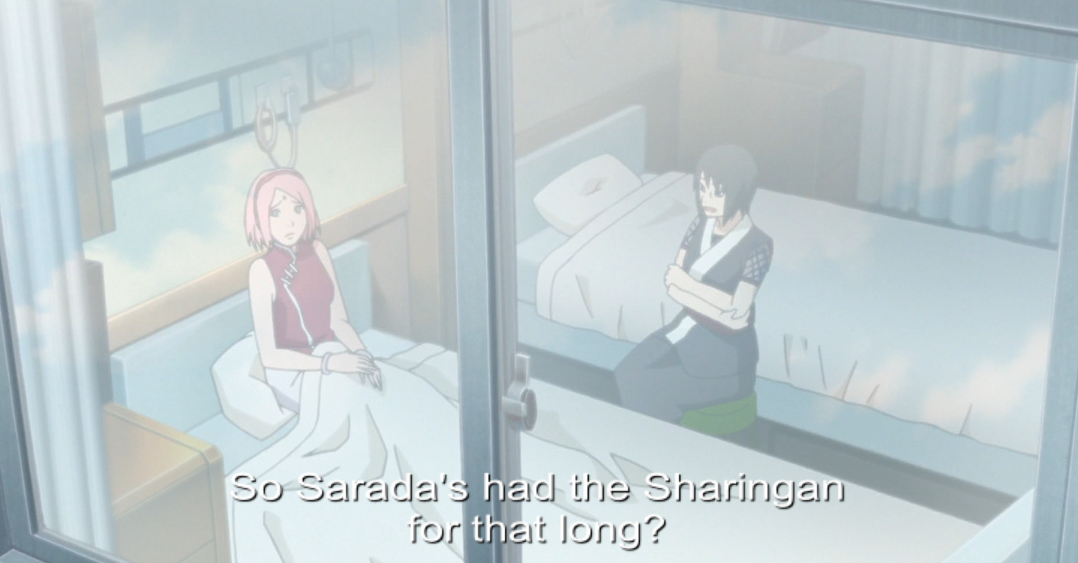
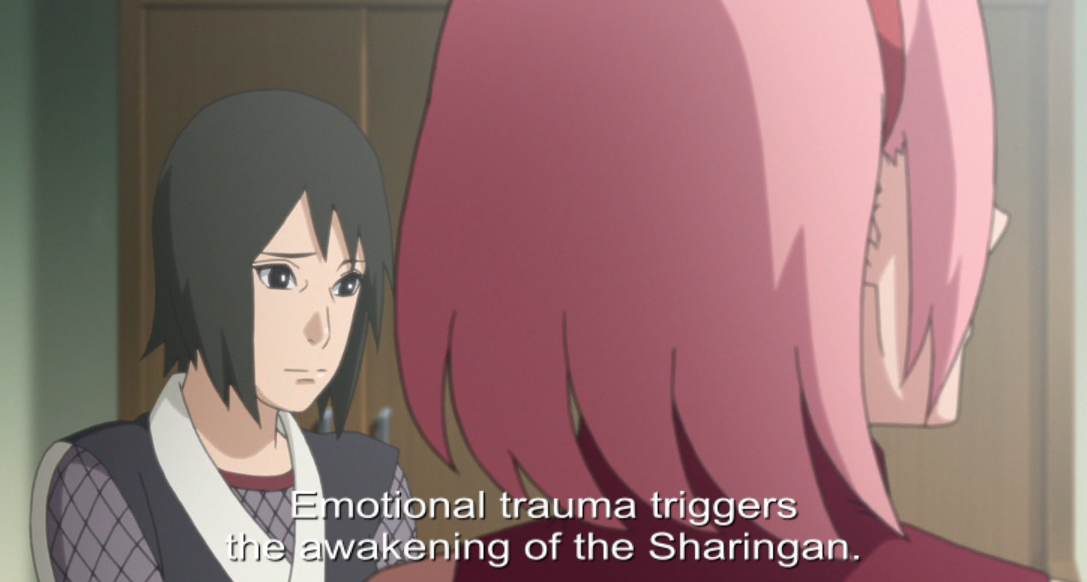
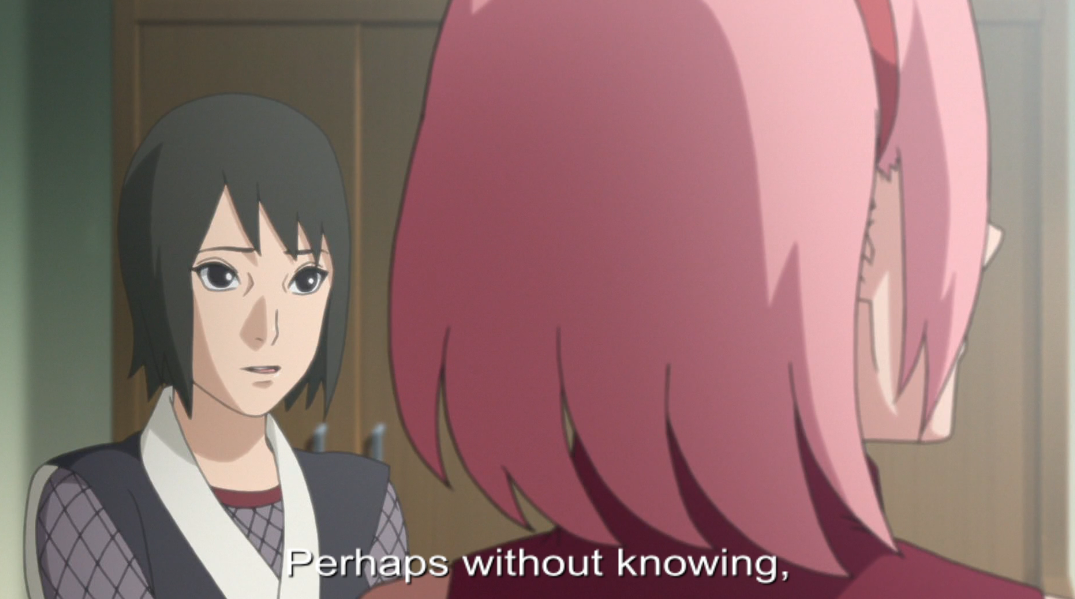
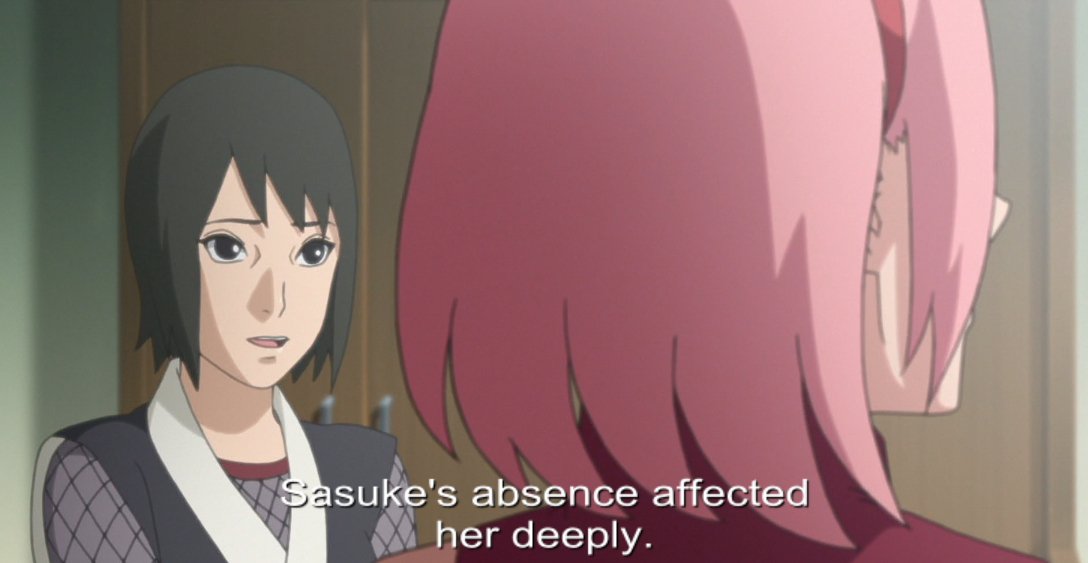
Sarada's sharingan manifested due to the emotional trauma of her father's absence, a power she also repressed for several years.
According to both the Boruto anime and the novelization of The Seventh Hokage and the Scarlet Spring, Sarada's sharingan first emerged when she was young, brought on by the emotional trauma of her father's absence. Only Sakura knew she'd awakened it, however, the rest of the village and Sarada herself remaining unaware of the manifestation of the magnitude of her pain from losing Sasuke. It's only when she meets him again, confronting her own warped vision of reality that it emerges yet again.
It's worth noting the parallels between Sarada's perception of the world in The Seventh Hokage and the Scarlet Spring and the events in TBV. In Kishimoto's stand-alone manga, it's Sarada who, through lack of information, begins to view reality and connected feelings in a backwards way, starting to believe that the mother who raised her is not her biological mother, similar to how Himawari is unable to perceive her biological brother as the sibling with whom she was raised.
Sarada in The Seventh Hokage and the Scarlet Spring isn't that different from the Sarada we encounter in TBV, a girl who hungers for truth and righteousness, feeling wronged by how her mother and the village as a whole seems to keep the truth of her birth and her father from her. While we know that younger Sarada was wrong in her assessment of her family's past and teenage Sarada is correct that Omnipotence changed everyone else's perception of reality rather than her own being incorrect, the personality qualities that drive both stories are consistent. We also see the psychological effects of Sasuke leaving Sarada at such a young age, her fear that he'd forgotten coming up yet again in how she interprets the master-student relationship between Boruto and her father.
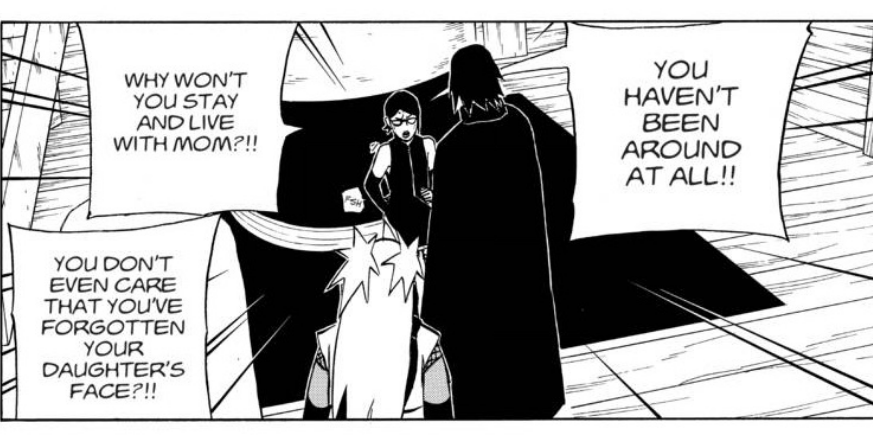
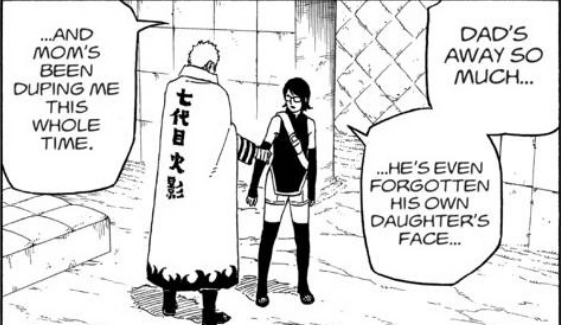
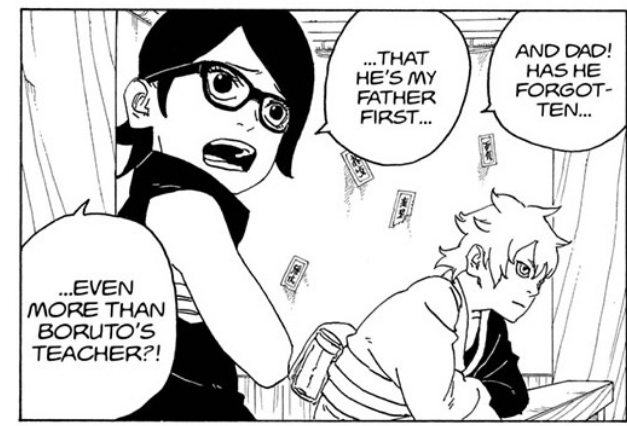
Sarada's fear of being forgotten.
Another similarity we find between the two stories is that Sarada is unaware of her powers until she finally needs to call on them in battle. In the official sneak peek, Sasuke tells Boruto that one day, Sarada will awaken her Mangekyo again and understand how to use it immediately. We see this with Sarada's original sharingan awakening as well. Sakuka tells us that it first manifested when she was young. It appears again when she sees Sasuke for the first time in recent memory and again when she learns the "truth" of her maternity (Suigetsu testing her umbilical cord and coming to the false conclusion that Karin is Sarada's actual mother). However, once Naruto explains that love is what matters, not blood, and Sarada joins her father and the Hokage in rescuing Sakura, she's able to instinctively use her sharingan in the battle against the army of Shin clones, helping to protect those with whom she has connected feelings. It's only once Sarada acknowledges the truth of her feelings that she can utilize the abilities of "the eye that reflects the heart."
When we return to Sarada's conversation with Yodo in chapter 20 of TBV, we find that Yodo is once again invoking the power of connected feelings, much as Naruto did in The Seventh Hokage and the Scarlet Spring when he told her "Love. That's all you really need." Both times, she's needed that push to connect the maelstrom within her with what's in her heart, the connection between the two enabling her to tap into the inherited abilities of her clan. Like Uchiha from previous generations who feel love through the magnitude of their hate, Sarada also suppresses her love because its strength causes her pain.
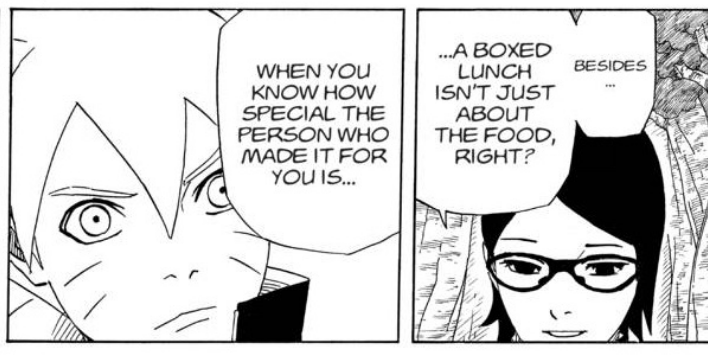
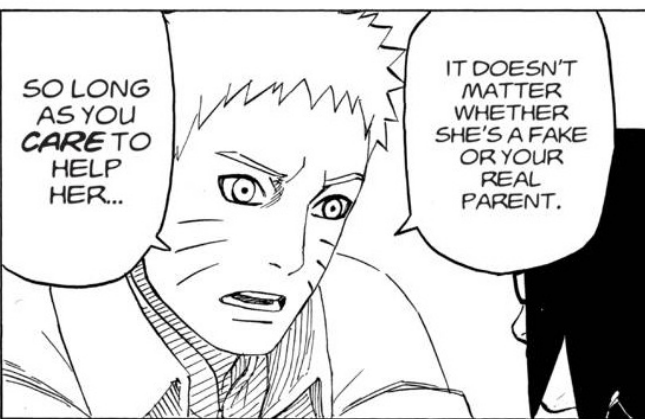
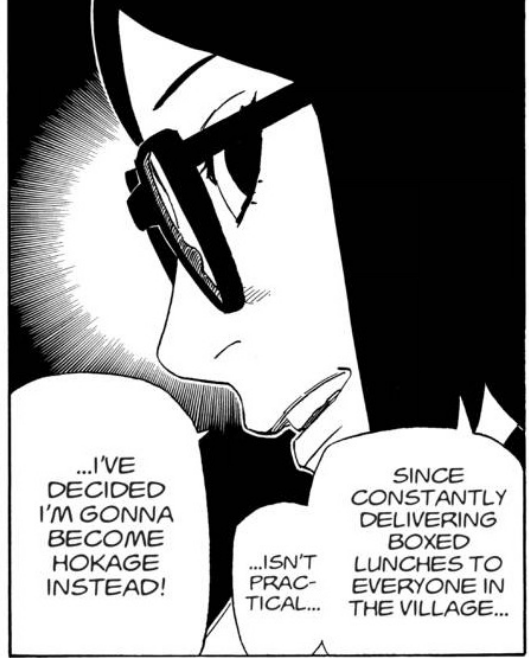
Sarada's inspiration to be Hokage.
When we revisit Sarada's character arc over the course of The Seventh Hokage and the Scarlet Spring, we see that her desire to become Hokage is different from Naruto's. While Naruto himself sees everyone in the village as family, what he's able to do for Sarada is connect her with the people who are special to her, much like a delivered lunchbox is a representation of connected feelings. Sarada wants to be a Hokage like Naruto, doing for others what was done for her, helping villagers to understand their love and the love that others have for them, which is why the Kawaki-Boruto swap pains her so much. People's bonds have been misplaced, the entire world turned upside down so no one understands the truth that should dwell in their hearts and the connections they should have. She cannot achieve her goals as a leader until the perceptions of those around her have been righted.
